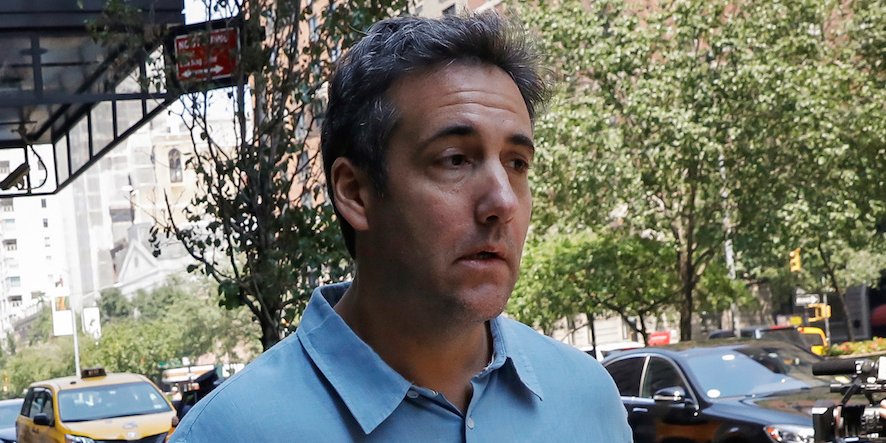- There are at least 12 audio tapes the government seized from Michael Cohen, President Donald Trump’s former longtime lawyer, according to a Monday court filing.
- The tapes were turned over to the government after Cohen, Trump, or the Trump Organization withdrew privilege claims, the filing says.
There are at least 12 audio tapes the government seized from Michael Cohen, President Donald Trump’s former longtime lawyer, a Monday court filing revealed.
The special master Barbara Jones wrote in a court filing to US District Judge Kimba Wood on Monday that privilege claims were withdrawn over 12 audio tapes in review – an action that could’ve been taken by Cohen, Trump, or the Trump Organization.
Jones is tasked with overseeing the document review for privilege designations in the ongoing criminal investigation in the Southern District of New York into whether Cohen violated campaign-finance laws, committed bank fraud or wire fraud, engaged in illegal lobbying, or participated in other crimes
Because the parties released their privilege claims over the tapes, they’ve been turned over to federal investigators, she wrote. It is unclear who appears on the tapes.
The existence of one of those 12 tapes was revealed on Friday when The New York Times reported that Cohen recorded a conversation with Trump two months before the 2016 election in which they discussed payments to Karen McDougal, a former Playboy model who says she had an affair with Trump years ago. That recording was among the more than 4 million documents the FBI seized in April when it raided Cohen's properties. Reporting of the tape's contents seemed to contradict the Trump campaign's past denial of any knowledge of such payments to McDougal.
American Media Inc., which publishes the National Enquirer, purchased the rights to McDougal's story for $150,000 in August 2016. But the outlet never published the piece. That practice is known as "catch and kill," and it effectively silenced McDougal's allegations. Federal investigators had sought documents in the Cohen raids related to that payment and similar payments to other women.

David Pecker, the head of AMI, is a longtime friend of both Trump's and Cohen's. Citing a person familiar with the recording, The Washington Post reported Friday that in it Cohen and Trump discussed a plan to purchase the rights to McDougal's story from Pecker's company for about $150,000.
Trump's personal attorney Rudy Giuliani confirmed to The Times that Trump discussed payments to McDougal with Cohen, but he said that ultimately no payment was made. Giuliani said that the recording was less than two minutes long and that there was no indication based on it that Trump knew of the payment to AMI beforehand.
Giuliani said that Trump told Cohen that if he did pay McDougal, it should be in the form of a check instead of cash so that it could be properly recorded, The Times reported.
"In the big scheme of things, it's powerful exculpatory evidence," Giuliani said.
Other reports have differed from Giuliani's description. Citing a source familiar with the recording, CNN reported that when Trump was informed about the tape he said he couldn't "believe Michael would do this to me."
Trump's legal team decided to revoke the privilege designation on that tape, multiple publications reported over the weekend and a source with knowledge of the withdrawal confirmed to Business Insider.
Giuliani did not immediately respond to a request for comment from Business Insider.
On Saturday, Trump tweeted about the tape, saying it was "inconceivable that the government would break into a lawyer's office (early in the morning) - almost unheard of."
The government - acting on a search warrant - did not break into Cohen's office.
"Even more inconceivable that a lawyer would tape a client - totally unheard of & perhaps illegal," Trump added. "The good news is that your favorite President did nothing wrong!"
New York, where the taping reportedly took place, legally requires only one person's consent for such a recording, suggesting it would not be illegal. The New York State Bar Association, however, considers the practice unethical.

